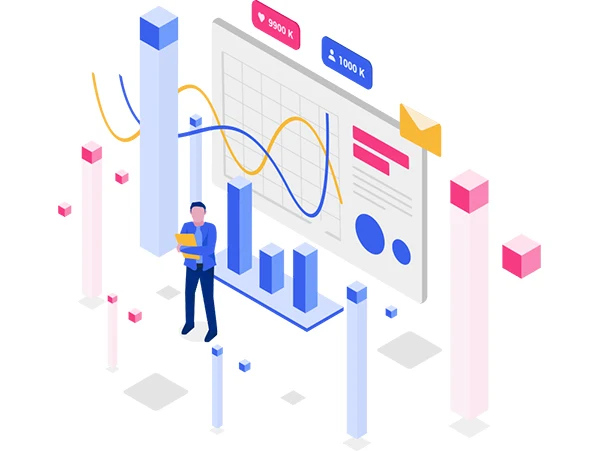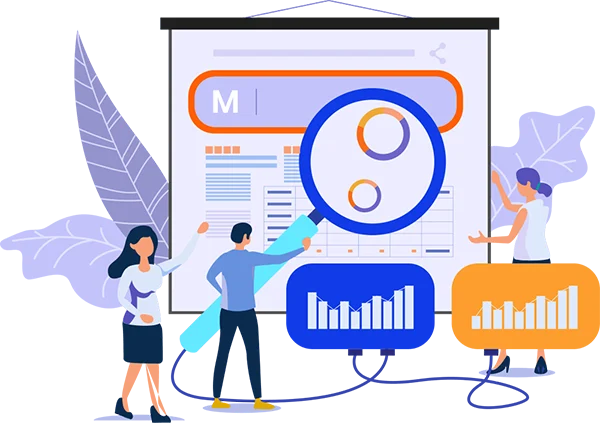Best Technical SEO Services in India
India offers some of the best technical SEO services, which focus on the comprehensive website audit, site speed optimization, and mobile compatibility. These services enhance user experience and search engine visibility through the fixing of important issues like broken links and crawl failures. Working with professionals ensures that your website operates at its best in today's highly competitive digital market.
What is Technical SEO?
Technical SEO is the practice of optimizing the back-end structure of a website in order to make it work more efficiently and to enhance its appearance in search engine results. It comprises several factors like crawlability, XML sitemaps, website architecture, mobile friendliness, and page speed. Technical SEO ensures that search engines can effectively crawl and index a website by repairing technical issues such as broken links and duplicate content. In the end, it enhances search ranking, increases organic traffic flow, and boosts user experience.

What is Included in Technical Seo Services
Technical SEO services ensure a wide variety of critical changes to a website for better functioning and search engine visibility. Mobile responsiveness is an important one to ensure a smooth experience across all devices, thorough auditing of websites to find issues, site speed optimization to load pages quicker, and proper URL structures to help navigate well.

Comprehensive Website Audits
Determine and evaluate technical problems.

Site Speed Optimization
Reduce loading times to enhance user satisfaction.

Mobile Optimization
Make sure it is responsive and mobile-friendly.

Crawlability Enhancements
Improve internal connectivity and the site's architecture.
What is a Technical SEO Audit?
A technical SEO audit is basically an in-depth analysis of the technical features on a website to identify areas that require enhancement and impact search engine performance as well as visibility. Among the things that are considered within this audit include crawlability, URL structure, indexing problems, mobile friendliness, and site speed. Once technological flaws are identified by businesses, they can better improve user experience and enable search engines to crawl the website efficiently and index the website. This will finally lead to improved rankings and organic traffic.
Page Speed Optimization
Page speed optimization is the optimization of a website's loading time, which improves the user experience and search engine rankings. The key tactics include using content delivery networks (CDNs), reducing HTTP requests, using browser caching, and compressing pictures. Pages that load more quickly have higher user engagement and lower bounce rates.


Image Optimization
Picture optimization, in a nutshell, refers to reducing the file size of photos without compromising quality in order to increase website efficiency and loading speed. This procedure for SEO and accessibility includes adding descriptive alt text, compressing photos, and utilizing the proper file formats. Properly optimized images enhance both user experience and search engine rankings.
Fixing Broken Links (404 Error)
Resolving the 404 error, or a broken link, is important to maintaining any website in good condition and enhancing its user experience. A 404 error occurs when a user attempts to view a page that has been moved or no longer exists. Because search engines often take these broken links to be a sign of the site not being well taken care of, they will have a negative impact on SEO. To address this, check your website periodically for broken links and replace them with correct URLs, or redirect them to relevant sites, or remove them altogether. This makes sure that all links work to make user navigation better, improves retention of traffic, and boosts overall rankings on the search engine.
How do we optimize website for Better Technical Seo Score
Start optimizing a website to achieve a better technical SEO score by performing an overall audit of what needs improvement. Try to optimize the website speed by reducing HTTP requests, caching through the browser, and image optimization. Ensure that your website is responsive to the mobile interface. Use structured data to make the search engine interpret your content in a better way. To enhance user experience, you should frequently check for and repair broken links. You must also optimize your robots.txt file, XML sitemap, and URL structure to improve crawling and indexing and raise your technical SEO score.
Why Pixelrasa for Best Technical seo Services?
Therefore, from its strong commitment to proper, fact-based solutions catering to individual needs, one can realize why Pixelrasas tops the list for delivering technical SEO services. Performing a deep website audit requires our technical professionals to analyze and resolve technical issues, which they use to pinpoint and eliminate problems hindering performance.

About Technical SEO
Technical SEO refers to optimising the backend architecture and underpinning of a website, which enhances its visibility and functionality in search engine results. It focuses on areas such as crawlability, mobile-friendliness, and site performance.
Technical SEO is necessary because it ensures that search engines can crawl and index your website efficiently. Well-optimized websites provide better user experiences, which result in higher rankings and more organic traffic.
Slow loading times, broken links (404 errors), duplicate content, incorrect URL structures, and missing robots.txt or XML sitemaps are common problems.
Use CDNs, optimize images, reduce the number of HTTP requests, and leverage browser cache to increase loading speed. In addition, look for areas to improve by regularly testing your website's loading speed with tools like Google PageSpeed Insights.
A website audit is an extensive review that evaluates your site's functionality, technical SEO elements, content quality, and overall performance. It helps to highlight areas that need optimization.
A technical SEO audit should be carried out at least every six months or following major website modifications, for instance, on content migrations or design improvements.
Mobile optimization guarantees a website's responsiveness and functionality on mobile devices. Improving navigation, text size, and graphics enhance the user experience on smartphones and tablets.
XML sitemaps make it easier for search engines to find your website's pages and comprehend its structure. Better crawling and indexing might result from submitting an updated sitemap, which can increase search exposure.
Search engines can better comprehend and present your material in search results by using structured data, which gives them more context about it. Rich snippets and increased visibility may result from this.
In fact, technical SEO greatly affects the ranking of your website. Optimized technical components will help in crawlability and enhance user experience and will, eventually, boost the search engine rank.

